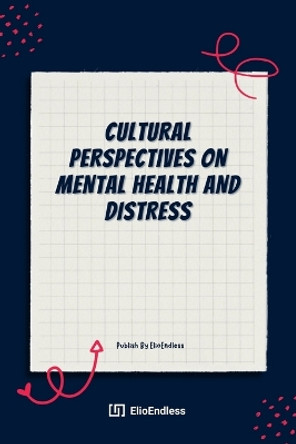Description
The first mainstream textbook to break away from outdated ways of thinking about mental health and distress, and take a modern, all-encompassing approach centred around the biopsychosocial paradigm
About the Author
John Cromby is Senior Lecturer at Loughborough University, UK. Previously, he conducted research and teaching at the Universities of Nottingham and Bradford, and he has experience of working in mental health, drug addiction, and learning disability settings. His work engages with the ways that bodies and social processes come together to produce experience, including experiences of distress. In recent years this has meant exploring topics including paranoia, clinical sadness, emotion and fear of crime, and experimenting with methods of jointly analysing textual data and embodied activity. He is a former editor of the journal Subjectivity. David Harper is Reader in Clinical Psychology at the University of East London (UEL), UK. He trained as a clinical psychologist at the University of Liverpool and worked as a clinical psychologist in National Health Service mental health services in the north-west of the UK for nine years. For a number of years he combined work as a clinician with part-time study for a PhD at Manchester Metropolitan University. He has been at UEL since 2000 and his research interests are in applying critical psychology and social constructionist ideas to the understanding both of distress (particularly paranoia and unusual experiences and beliefs) and the work of mental health professions. He co-authored Deconstructing psychopathology (1995) and co-edited Qualitative research methods in mental health and psychotherapy: An introduction for students and practitioners (2012). He undertakes a small amount of clinical work as a Consultant Clinical Psychologist in Newham as part of the Systemic Consultation Service. Paula Reavey is Professor of Psychology at London South Bank University, UK, where she delivers a module on the psychology of mental health and distress. She edited the volume Visual Psychologies: Using and Interpreting Images in Qualitative Research (2011) and also co-edited two volumes, New Feminist Stories of Child Sexual Abuse: Sexual Scripts and Dangerous Dialogues (with Sam Warner, 2003) and Memory Matters: Contexts for Understanding Sexual Abuse Recollections (with Janice Haaken, 2009). She is currently working on a co-authored book Vital Memory: Ethics, Affect and Agency (with Steven D. Brown, 2013) and has also published numerous articles on social remembering, child sexual abuse and sexuality, mental distress, and embodiment and space, using a variety of methodologies, including memory work, discourse analysis and visual methods.
Reviews
'This is the book that I have been waiting years to see. Superb, thoroughly researched and intellectually refreshing - a game changer in the field. It should be mandatory reading on every psychology course not just those dealing with mental health issues.' - Ron Roberts, Kingston University, UK 'At last, an undergraduate text that adopts a critical approach to 'Abnormal Psychology'. Psychology, Mental Health and Distress is the first of its kind, providing an accessible, engaging, and refreshing take on the standard material. Assembled by an impressive team of world-class scholars, this text extends the analysis of people's distress beyond biomedical and individualist framings, and toward a deeper exploration of the complex interplay between the body, the psych, and the social and political context. This is an important and revolutionary resource for students and scholars alike.' - Michelle Lafrance, St Thomas University, Canada 'I wish this book had been around when I was an undergraduate. Two aspects of the book are especially important. First, recognising the importance of culture in mental health, and secondly, giving a voice to mental health service users.' - Kate Bennett, University of Liverpool, UK 'In simple language and in no ambiguous terms, the authors of this book clearly bring out the limitations of current theory and research in psychiatry, abnormal and clinical psychology. The authors also go a step further to show how we can unshackle ourselves from these limitations. I whole heartedly recommend this book to both the beginning student and seasoned practitioner of mental health who is interested in helping people afflicted by mental distress.' - David Lackland Sam, University of Bergen, Norway 'An inspiring and ambitious text - a longed-for change to passive acceptances of psychiatric categories. This book is ideal for academics and students wishing to critically probe the limitations of DSM diagnoses.' - Leanne Franklin, Cardiff Metropolitan University 'The book gives an excellent introduction to the field of abnormal psychology and could be read by students, academics, service users and clinical psychologists both to understand the different causes to mental distress, but also how these problems could be best treated.' - Roger Hagen, Norwegian University of Science and Technology 'This is a book that is long overdue. So many books on psychopathology tend to be overly influenced by a biomedical and cognitive approach to understanding psychological distress, and rarely go further than that. This book takes a refreshing psychological, social and critical approach. It does not discard the importance of biological factors, but it considers in detail the various psychological and social determinants of mental health and distress. I recommend this book as a must-read for clinical psychology trainees, and for students and professionals working in the field of mental health.' - Poul Rohleder, Anglia Ruskin University, UK 'I think it is a brilliant book by what I have read so far - and it has been a long time in coming! I think this book could possibly set the trend for the future way of perceiving and thinking about mental health.' - Dr Fiona McConnochie, School of Social & Health Sciences, University of Abertay Dundee
Book Information
ISBN 9780230549562
Author John Cromby
Format Paperback
Page Count 456
Imprint Bloomsbury Academic
Publisher Bloomsbury Publishing PLC
Weight(grams) 1206g







